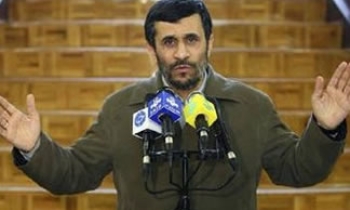BEIJING -- A new attempt to clamp down on China's media has provoked an outcry from Chinese journalists and parliament members, sparking a controversy that could kill the proposal.
The unusual rebellion by Chinese news media and politicians was triggered by a draft law that would impose fines up to $12,500 (U.S.) on media outlets that publish unauthorized reports on emergencies, including natural disasters, epidemics, riots, industrial accidents and other crises.
The law is being considered by the National People's Congress, the rubber-stamp parliament that normally meets for only two weeks a year. When its contents were leaked this week, a wave of criticism erupted.
If the law is passed, it would discourage the media from exposing the health crises and environmental scandals that have proliferated in China in recent years. Authorities tried to suppress the news of the SARS epidemic in 2003 and a chemical spill in a northern river last year, but both soon became major controversies in the Chinese media.
Now the government apparently wants to discourage such reporting. The new law would make it illegal for the media to report on emergency situations without permission from local governments. The proposal is part of a growing crackdown on Chinese journalists, including the jailing of some reporters and the firing of editors at newspapers that fail to obey the state.
But in an unexpected mutiny, the Chinese media responded angrily to the proposed law this week. "These restrictive regulations will not only cause an absurdity in emergency situations, but it will show that some people have insufficient knowledge about the functions of the news media," said a commentary in Southern Metropolitan Daily, a prominent Chinese newspaper.
"The media's watchdog role is accepted by the public as common sense," the newspaper said. "Using the law to affirm governmental control over the administration of news outlets is an utterly dangerous endeavour."
The website of the People's Daily, the state-run newspaper, published criticism of the draft law by several Chinese media outlets. "There is a lot of evidence that some local governments have delayed their reports on disasters, or even lied or intentionally concealed the facts for their own benefit, in recent years," one newspaper said. "These actions are increasing. Without monitoring by the media, will those officials become even bolder?"
A popular website, Red Net, said the law would violate press freedom and the public's right to know. "It would make the public doubt the government's ability to deal with emergencies," it said. "The media have an obligation to report on emergencies. From the public viewpoint, the media should not be fined but should be praised."
In chat rooms on the Chinese Internet this week, the reaction to the proposed law was equally unhappy. "If this is approved, why would we still need the media?" a commentator asked on one website. "It's a tragedy for China," another said. "Are they afraid of the people's voice?"
Even the state-owned news agency, Xinhua, acknowledged that the draft law was under attack from some parliamentarians and might be revised.
Fang Xin, a member of the National People's Congress, called for the law to be reconsidered. "In fact, once emergencies occur, it is usually the reporter's perseverance that lays bare the truth and encourages the government to take proper action," he told Xinhua yesterday. "Information flow is very important in times of crisis."
Another parliament member, He Ken, said he disagreed with the draft law. The media's watchdog role is "very important" and needs to be strengthened in China, he said.
The draft law is also provoking concern outside the country. The Committee to Protect Journalists, based in New York, said it is "deeply troubled" by the law.









